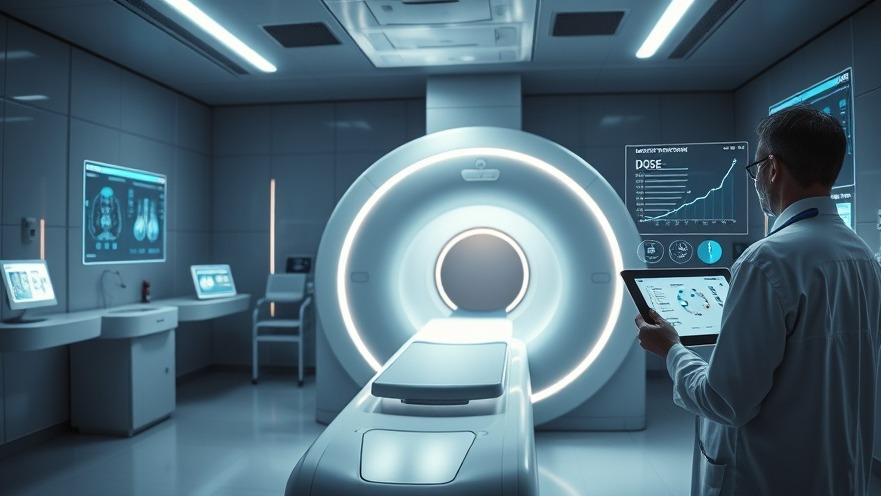
Revolutionizing Cancer Treatment: Modern Radiotherapy Explained
Radiotherapy has long been a cornerstone treatment for cancer, but recent advancements are transforming how we approach this vital therapy. Today’s modern techniques allow for higher doses to be administered in fewer sessions, significantly changing the patient experience and outcomes. For concierge health practitioners, understanding these innovations is essential in guiding patients through their treatment options effectively.
The Shift to Precise Dosing
Modern radiotherapy leverages cutting-edge technology to precisely target tumors while sparing surrounding healthy tissues. Techniques such as stereotactic body radiotherapy (SBRT) and intensity-modulated radiation therapy (IMRT) enable oncologists to deliver higher doses of radiation over a reduced number of treatment sessions. This not only shortens the duration of treatment but also minimizes side effects, leading to an improved quality of life for patients.
The Benefits of Fewer Sessions
Reduced treatment sessions imply several benefits for patients:
Convenience: Shorter treatment times allow for less disruption in the patient’s daily life, enhancing their overall treatment experience.
Lower Costs: Fewer sessions can lead to decreased medical costs and reduced burden on healthcare systems, making treatments more accessible.
Improved Compliance: For many patients, the demanding schedule of multiple sessions can deter compliance; fewer sessions foster better adherence to care plans.
Future Predictions: The Evolution of Radiotherapy
As technology continues to evolve, we can expect even more advancements in radiotherapy. Artificial intelligence (AI) is being used to personalize treatment plans based on a patient’s unique genetic makeup and tumor characteristics. This precision medicine approach aims to boost the effectiveness of treatments while minimizing adverse effects.
Counterarguments: Understanding Challenges and Limitations
Despite the benefits, it is vital to acknowledge potential challenges. Some healthcare providers may be cautious about adopting new technologies due to costs associated with training and equipment upgrades. Furthermore, the efficacy of higher doses over fewer sessions remains a topic of study; practitioners need updated research to make informed recommendations.
Actionable Insights for Health Practitioners
For concierge health practitioners aiming to provide tailored advice for their patients, staying abreast of technological advancements in radiotherapy is critical. Utilize the following strategies to enhance your practice:
Attend Workshops: Regularly seek out educational opportunities surrounding advances in radiotherapy technologies and best practices.
Collaborate with Oncologists: Establish strong communication channels with oncologists to stay updated on the latest treatments and results.
Educate Your Patients: Share knowledge about the benefits of modern radiotherapy, empowering patients to make informed decisions regarding their care.
Final Thoughts: The Imperative of Staying Informed
As healthcare continues to evolve, the importance of staying ahead of innovations like modern radiotherapy cannot be overstated. Concierge practitioners play a crucial role in facilitating access to the best possible treatment options for their patients. By leveraging the advancements in cancer treatment, practitioners can significantly improve patient outcomes and overall satisfaction. As you navigate the future of healthcare, continuous education and adaptation will be key to your success.
It is essential for practitioners to take action now and be proactive in seeking out the latest information. Consider workshops, articles, and relevant studies that keep you informed about new practices and technologies. The well-being of your patients may depend on leveraging these innovative approaches in your practice.
 Add Row
Add Row  Add
Add 




Write A Comment